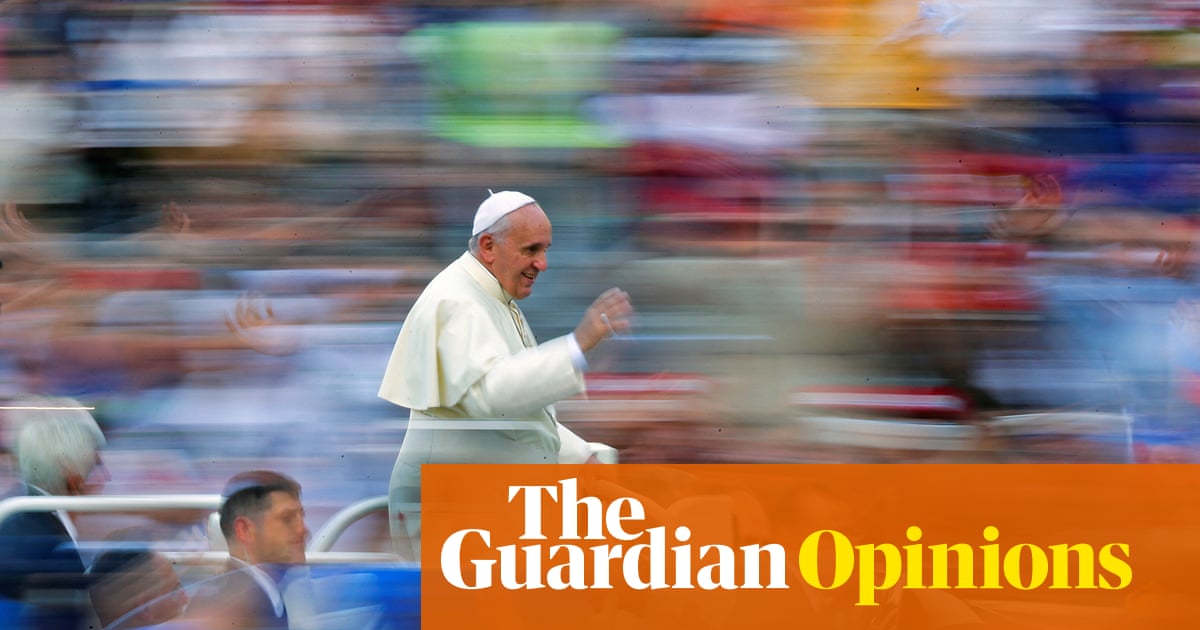Just three days before he was admitted to hospital for bronchitis in February, Pope Francisdelivered a strongly worded messageto the US about Donald Trump’s attitude to migrants. In a letter sent to the country’s Roman Catholic bishops, he made clear that he completely disagreed with Trump’s mass deportation plans for illegal migrants. “What is built on the basis of force, and not on the truth about the equal dignity of every human being, begins badly and will end badly.”
The sentiment was not only reserved for Trump. Throughout his 12 years as pope, Francis, whodied this morning at the age of 88, focused on the dignity of people, especially those viewed by others as outsiders – whether migrants, prisoners, whom he often visited, or LGBTQ+ people. “Who am I to judge?” he famously said when asked about his attitude towards gay men and women, a remark that contrasted starkly with his predecessor, Pope Benedict XVI, who once described homosexuality as a tendency “ordered towards an intrinsic moral evil”.
This focus on outsiders stemmed in part from Francis’s own experience. He grew up in Argentina, about 7,000 miles from theVatican, and was the child of migrants, whose family arrived in Buenos Aires in 1929, seeking a new start after scraping a living in rural Italy. It was this that caused him to joke to the crowds in Rome’s St Peter’s Square, on the night of his election in March 2013, that the cardinals had gone to the peripheries to find a new pope.
While these experiences shaped Francis’s thinking, so did the gospels. He became one of the great communicators of Christian faith, chattily expounding like a parish priest to pilgrims attending his general audiences in St Peter’s Square. He would finish reciting the Angelus prayer there on Sundays with a “buon pranzo” – have a good lunch – and rarely wore traditional red shoes or white trousers, complaining they made him look like an ice-cream seller. He abandoned the apostolic palace for a simple room in the Casa Santa Marta, a residence used by bishops and cardinals visiting Rome.
This style forms a major part of his legacy. Francis was a pope who wanted none of the pomp of a papacy. But there was substance underlying this, too. His concern for those most affected by economic hardship, war and politics, and the tide of refugees sweeping through Europe and America, was matched by his empathy for those uprooted by the climate crisis. His concern for the planet – what he called “our common home” – was rooted in a reverence for God’s creation. His most radical encyclical, or teaching document, Laudato si’, was published in 2015, putting forward scientific and theological reasons for protecting the planet from climate breakdown. He would often give his visitors a copy – including Trump, in 2017.
Despite his focus on justice, ecology and poverty, there were dissatisfied rumblings about his papacy inside the church. When the cardinals gathered in Rome to vote for the successor to Benedict XVI after his sudden resignation in February 2013, they wanted a reformer who could shake up the management of the church’s finances. Francis swept away the old guard of cardinal overseers, and set up his own team of clerics and lay experts, after revelations of mismanagement of the Vatican’s own finances emerged.
He also attempted to change the way the church dealt with priests involved in child sexual abuse. His changes began well, but floundered as details emerged of clerics to whom Francis himself seemed to have been too lenient. Some of those who supported the Argentinian felt frustrated that the church moved too slowly.
Conservatives in the church were most outraged by Francis’s approach to morality, particularly his decision to urge parish priests to decide on individual cases as to whether divorced Catholics who remarried should receive communion. After this, his fiercest opponents published an unprecedented document – adubia,or expression of doubt, about his teaching. They showed similar disdain for his more recent proposal, published in 2023, that outlined the possibility of blessings for same-sex couples.
But liberals were frustrated, too, particularly by his refusal to countenance women becoming priests. True, he appointed several women, albeit almost entirely nuns, to key Vatican positions that were previously always occupied by men. That marked huge change, as did his recent synods, which gave lay participants at the synod gatherings – the representatives of ordinary Catholics in the pews – equal discussion and voting rights with bishops and cardinals.
Now, as the door to the pope’s room is ritually sealed, and his personal papal ring he has worn for the past 12 years is snapped in two, there will be speculation as to who will follow him. Francis will have played his part in shaping the church in his image. Of the 138 cardinals eligible to vote in the next conclave to elect a new pope, 110 are Francis’s personal picks.
Whoever is elected next, and whatever version ofCatholicismthey preach, the church needs someone who understands how to use the contemporary media to reach out to the world, whether on social media, in a televised interview, or through a letter critiquing the US president. Whatever else a pope has to be today, he must be a great communicator. And if the pope has that gift, then he can be not only shepherd of the world’s Catholics, but someone who speaks to people of all faiths and none. There were times when Francis did appear to have that talent.
As to the Catholic church itself, given the divisions that constantly threaten to overwhelm it, living up to the old papal title of pontifex – bridge – is an almost impossible task.
Catherine Pepinster is a former editor of The Tablet, the Catholic journal
